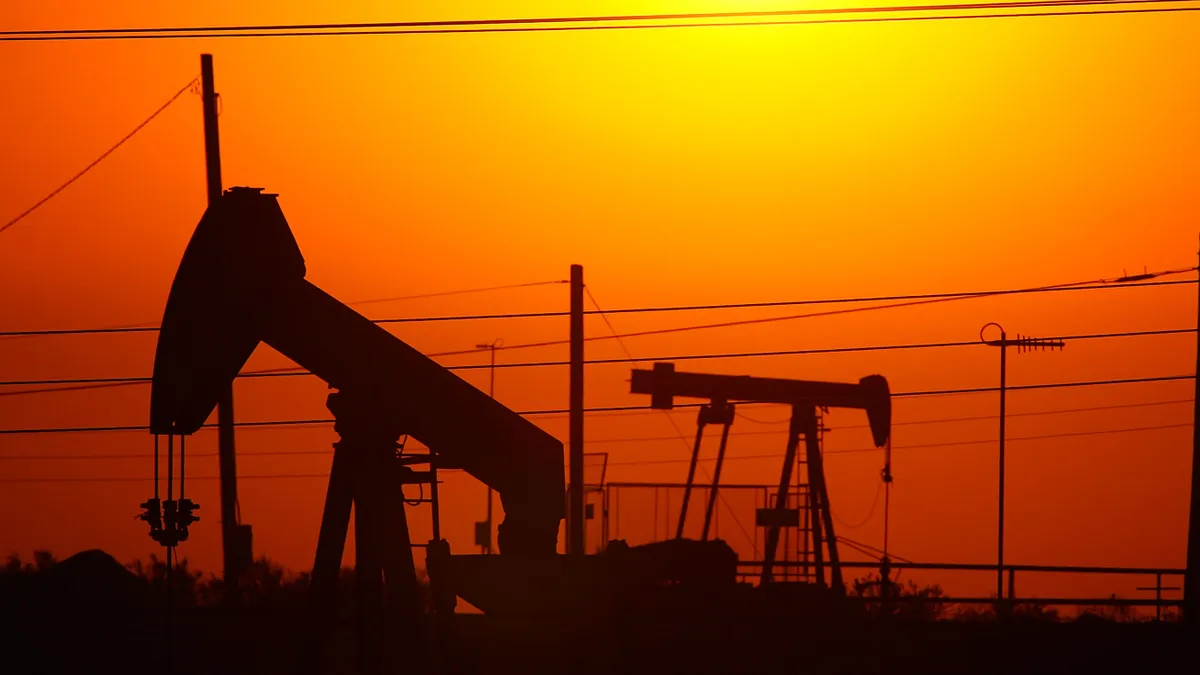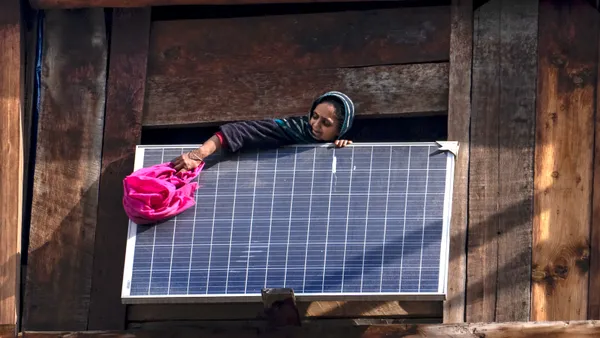Dive Brief:
- A group of only 57 fossil fuel and cement producers are responsible for generating 80% of the world’s carbon dioxide emissions since the Paris Climate Accords were signed in 2015, according to research unveiled Thursday.
- The Carbon Majors report found that oil firm Saudi Aramco, Russian energy corporation Gazprom and Coal India — all state-owned — were the top three emitters and accounted for 4.8%, 3.3% and 3.0% of all emissions produced, respectively, between 2016-2022. Oil giants Chevron (3.0%), ExxonMobil (2.8%) and BP (2.2%) led the list for most emissions produced by investor-owned companies within the same time period.
- The study — conducted by independent think tank InfluenceMap, which analyzes how business and finance impact climate change — also concluded that most of the 122 surveyed companies increased their fossil fuel production in the seven years following the Paris Agreement. Sixty-five percent of state-owned companies and 55% of investor-owned companies showed higher production over that span.
Dive Insight:
The report’s findings are based on a database that contains cumulative historical emissions data for some of the world’s largest oil, gas, coal and cement producers from 1854 through 2022, who collectively emitted approximately 1,421 gigatons of carbon dioxide equivalent. The data was used to quantify the emissions produced from the combustion of marketed products and direct production-linked operations from these companies, according to the report.
The latest findings build on the inaugural edition of the Carbon Majors report released in 2013, spearheaded by research nonprofit the Climate Accountability Institute.
InfluenceMap’s program manager, Daan Van Acker, said the database was a “key tool in attributing responsibility for climate change to the fossil fuel producers with the most significant role in driving global [carbon dioxide] emissions,” in a Thursday press release.
Carroll Muffett, president and CEO of the Center for International Environmental Law, said the database makes it easier to “track changes in corporate behavior and production across discrete and clearly defined timescales that will be relevant to investors, investigators, and litigators alike.”
The report found that nation-state producers accounted for 38% of emissions in the Carbon Majors database, while state-owned entities made up for 37% and investor-owned companies contributed 25% during the seven-year period after the Paris Agreement was signed.
The findings also pointed to a transition in the coal industry during this time frame, noting coal supply shifted from investor-owned to state-owned entities, with global coal consumption increasing by almost 8% by 2022, hitting a record high of 8.3 billion tons that year.











